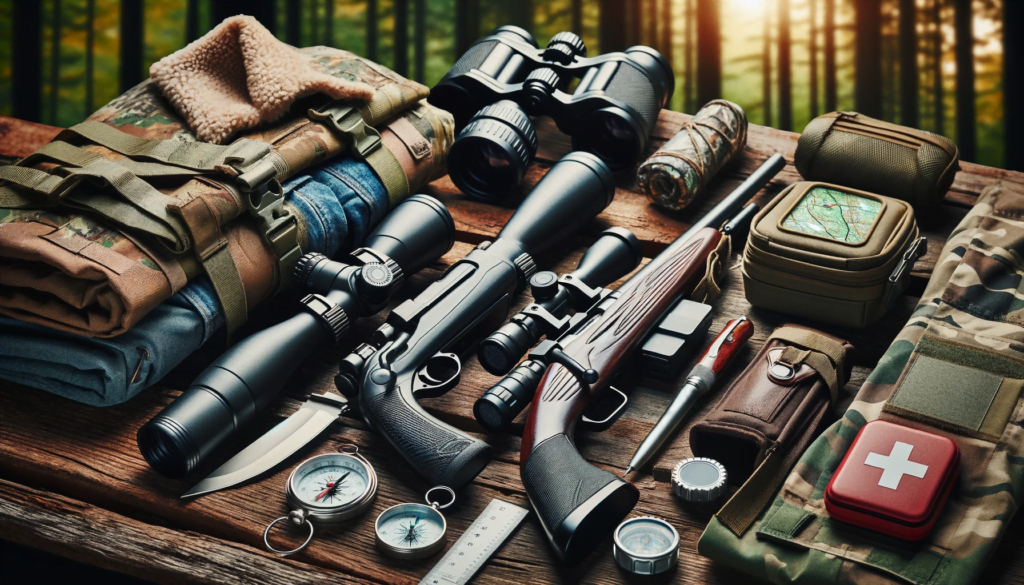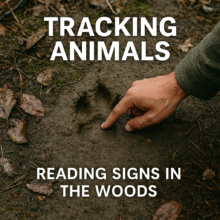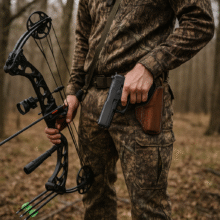A Checklist of Crucial Gear for a Successful Hunt

Preparing for a hunt is much more than just a routine; it’s a ritual that sets the stage for the adventure ahead. A successful hunt requires not only skill and knowledge but also the right gear. This comprehensive guide provides an extensive checklist of essential items, ensuring you are well-prepared for your next hunting expedition. Spanning over 5000 words, we delve into the details of each item, why it’s necessary, and how to choose the best option for your needs.
Table of Contents
Table of contents
1. Checklist of Crucial Gear for Successful Hunt
A. Weapons and Ammunition
i. Firearms and Bows
- Rifles: Ideal for long-range shooting; consider caliber based on the game.
- Shotguns: Best for bird hunting; choose the appropriate gauge.
- Bows: Compound bows for precision; recurve bows for traditionalists.
- Crossbows: A powerful alternative for those with physical limitations.
ii. Ammunition and Arrows
- Bullets and Slugs: Match them with your firearm’s caliber and intended game.
- Arrows/Bolts: Choose based on bow type, draw weight, and hunting game.
B. Clothing and Camouflage
i. Base Layers
- Moisture-Wicking Fabrics: Keep dry and comfortable.
- Thermal Properties: For cold weather hunts.
ii. Outer Layers
- Camouflage: Pattern based on the environment.
- Blaze Orange: For visibility and safety.
iii. Footwear
- Waterproof Boots: Essential for wet conditions.
- Insulated Boots: For cold weather.
i. GPS Devices
- Handheld GPS: For tracking your location.
- Smartphone Apps: As a backup navigation tool.
ii. Maps and Compass
- Topographic Maps: For detailed terrain understanding.
- Compass: Reliable and doesn’t require batteries.
iii. Communication Devices
- Two-Way Radios: For group hunting.
- Satellite Phones: In areas without cell service.
D. Optics
i. Binoculars
- Magnification and Lens Quality: For clear distant viewing.
- Durability and Waterproofing: To withstand hunting conditions.
ii. Rangefinders
- Laser Rangefinders: For accurate distance measurement.
E. Survival and Safety Gear
i. First-Aid Kit
- Basic Medical Supplies: Bandages, antiseptics, pain relievers.
- Specialized Items: Based on personal medical needs.
ii. Emergency Tools
- Multi-Tools or Hunting Knives: Versatile for various tasks.
- Fire Starters: Matches, lighters, or fire-starting kits.
iii. Water and Food
- Portable Water Filters/Purifiers: For clean drinking water.
- Non-Perishable Food: High-energy snacks and meals.
iv. Shelter
- Emergency Blankets or Bivvies: Lightweight and compact.
F. Miscellaneous Items
i. Scent Control
- Scent-Eliminating Sprays: To mask human odor.
- Scent Attractants: Specific to the hunted game.
ii. Game Calls
- Electronic or Manual Calls: Based on the target species.
iii. Lighting
- Headlamps and Flashlights: Essential for pre-dawn or post-dusk.
iv. Batteries and Power Banks
- Extra Batteries: For all battery-operated gear.
- Portable Power Banks: To recharge electronic devices.
2. Selecting the Right Gear
A. Consider the Hunting Environment
- Terrain: Mountainous, forest, or plains.
- Climate: Temperatures and weather patterns.
B. Know Your Game
- Species-Specific Needs: Different gear for deer, birds, etc.
- Behavior and Habitat: Influence choice of camouflage and calls.
C. Personal Comfort and Skill Level
- Physical Fitness: Gear weight and ease of use.
- Experience: Complexity of gear should match skill level.
3. Maintaining and Storing Your Gear
A. Regular Maintenance
- Cleaning and Servicing Weapons.
- Checking and Updating Electronic Devices.
B. Proper Storage
- Safe and Dry Environment.
- Organized for Easy Access.
Frequently Asked Questions
Q: How much should I invest in my hunting gear?
A: Your budget should align with your commitment to hunting. High-quality gear can be a significant investment, but it often offers better performance and longevity. Balance cost with quality, and remember that the most expensive gear isn’t always the best choice for your needs.
Q: Can I rent hunting gear instead of buying?
A: Yes, renting is an option, especially for occasional hunters or those trying new equipment. It’s a cost-effective way to test different gear before making a purchase.
Q: How do I ensure my gear is ethically sourced and environmentally friendly?
A: Research brands committed to sustainability and ethical practices. Look for gear made from recycled materials, and consider buying second-hand to reduce environmental impact.
Q: Is it necessary to update my gear every season?
A: Not necessarily. Regular maintenance and care can extend the life of your gear. Upgrade only when necessary, based on wear and tear or advancements in technology that significantly enhance your hunting experience.
Remember, the right gear can make a significant difference in the success and enjoyment of your hunt. By carefully selecting, maintaining, and storing your equipment, you’re not just preparing for a successful hunt; you’re investing in a rewarding experience that connects you to the ancient tradition of hunting. Whether you’re a seasoned hunter or just starting, this checklist will ensure you’re well-equipped for the challenges and joys of the hunt.







